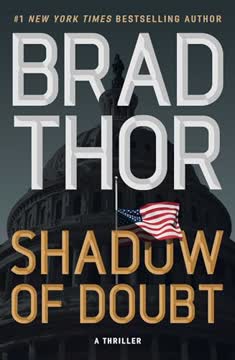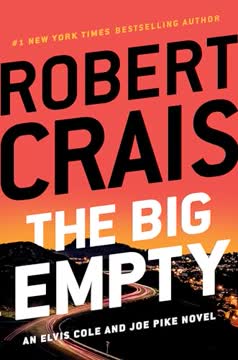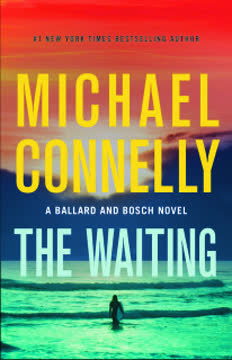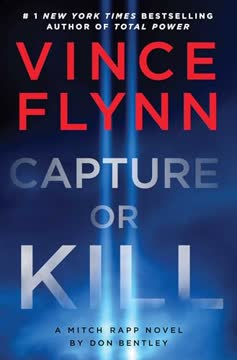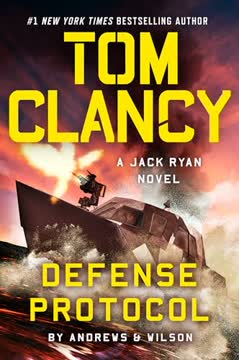Plot Summary
Reacher's Painful Awakening
Jack Reacher finds himself in a dire situation, awakening in a pitch-black room, shackled and injured. His mind races to piece together how he ended up in this predicament. Despite the pain and disorientation, Reacher's resolve is unyielding. He knows that whoever is responsible for his captivity will face his wrath. This moment sets the stage for Reacher's relentless pursuit of freedom and justice.
Vidic's Sinister Observations
Ivan Vidic, a cunning opportunist, observes a catastrophic car crash involving a Lincoln Navigator. The crash, which kills the driver, Gibson, presents Vidic with a chance to exploit the chaos. He discovers Reacher alive but injured and, with the help of accomplices, removes both men from the wreck. Vidic's mind is already scheming, seeing the crash as a fortuitous event to manipulate for his gain.
Fletcher's Interrogation Tactics
Darren Fletcher, a paranoid and controlling figure, interrogates Reacher about the crash and his presence in Gibson's car. Despite Fletcher's aggressive tactics, Reacher remains silent, assessing his captor's intentions. Fletcher's desperation to extract information reveals his fear of losing control. Reacher, ever resourceful, seizes an opportunity to overpower Fletcher, showcasing his determination to escape.
Vidic's Dubious Rescue Offer
Vidic approaches Reacher with a proposition: assist him in a heist, and in return, Vidic will provide information on Fletcher and his crew. Reacher, skeptical of Vidic's motives, weighs the offer carefully. Vidic insists on urgency, as Fletcher plans to abscond with a fortune. Recognizing the potential to dismantle Fletcher's operation, Reacher agrees to the uneasy alliance, setting the stage for a high-stakes confrontation.
Paris and Vidic's Secret Plans
Paris, Vidic's partner, is wary of Fletcher's growing paranoia and the threat of law enforcement. Vidic reassures her, revealing his plan to double-cross Fletcher and Kane, taking the money and disappearing. Paris, torn between loyalty and self-preservation, agrees to Vidic's scheme. Their conversation exposes the fractures within Fletcher's crew and the desperation driving their actions.
Reacher's Strategic Maneuvering
As Reacher and Vidic approach the heist's location, Reacher reflects on the risks and rewards of their plan. He knows Vidic's loyalty is tenuous, but the chance to bring down Fletcher's operation is too tempting to ignore. Reacher's military training kicks in, and he meticulously plans his next moves, ready to adapt to any surprises Vidic or Fletcher might spring.
The Cave's Hidden Secrets
Reacher explores a cave used as a makeshift storage for Fletcher's illicit goods. He finds evidence of the crew's past heists and their plans for a final score. The cave's contents reveal the scale of Fletcher's operation and the stakes involved. Reacher, piecing together the clues, realizes the importance of timing and precision in executing his plan to capture Fletcher and his crew.
The Final Confrontation
The tension reaches its peak as Reacher faces Fletcher, Vidic, and Kane in a final showdown. Reacher's strategic advantage and combat skills are put to the test as he navigates the treacherous dynamics between the crew members. With Vidic's betrayal looming and Fletcher's desperation growing, Reacher must outsmart and outfight his adversaries to bring justice to those who have wronged him.
Paris's Desperate Plea for Help
Paris, skeptical of Vidic's disappearance, confronts Reacher, suspecting foul play. Reacher, trying to piece together the puzzle, realizes Vidic's escape was orchestrated, possibly by someone within their circle. Paris, torn between fear and loyalty, is forced to reconsider her alliances, as Reacher warns her of the impending danger if they don't act swiftly.
Vidic's True Allegiance Revealed
The truth about Vidic's past comes to light, revealing his role as an undercover agent who turned rogue. His betrayal runs deep, having manipulated both sides for personal gain. Reacher and Knight must navigate the fallout of Vidic's actions, as they grapple with the implications of his deceit and the threat it poses to national security.
The Elusive Memory Stick
The memory stick containing sensitive information becomes the focal point of a high-stakes chase. Reacher and Knight must outmaneuver Kane and his crew to prevent the data from falling into the wrong hands. The tension escalates as they close in on the elusive prize, knowing the consequences of failure are catastrophic.
Kane's Final Stand on the Pier
Reacher and Knight track Kane to a secluded pier, where a final confrontation unfolds. Kane, cornered and desperate, makes a last-ditch effort to escape with the stolen gold and the memory stick. Reacher's strategic prowess is put to the test as he battles Kane, determined to bring him to justice and recover the critical information.
Reacher's Reluctant Return to Normalcy
With the mission complete and the threat neutralized, Reacher faces the prospect of returning to his solitary life. Knight offers him a glimpse of a different future, but Reacher, ever the wanderer, is hesitant to settle down. As he prepares to leave, he reflects on the journey and the people he's met, knowing his path is far from over.
Characters
Jack Reacher
Jack Reacher, a former military policeman, finds himself in a precarious situation, shackled and injured. Despite the disorientation, his resolve to escape and seek retribution is unwavering. Reacher's strategic mind and combat skills are his greatest assets as he navigates the dangerous world of Fletcher's criminal enterprise.
Ivan Vidic
Vidic's true nature as a double agent is exposed, revealing his manipulation of both criminal and law enforcement circles. His actions set off a chain of events that threaten national security, forcing Reacher and Knight to confront the fallout of his treachery.
Darren Fletcher
Darren Fletcher is a calculating leader, driven by paranoia and a desire for control. His interrogation of Reacher reveals his desperation to maintain power and protect his operation. Fletcher's willingness to resort to violence and manipulation makes him a formidable adversary.
Paris
Paris is caught in a web of deceit, struggling to reconcile her loyalty to Vidic with the reality of his betrayal. Her interactions with Reacher reveal her desperation and desire for a way out, as she grapples with the consequences of her choices and the danger they pose.
Kane
Kane is a formidable opponent, driven by greed and a desire for power. His final confrontation with Reacher on the pier showcases his willingness to do whatever it takes to escape justice, making him a dangerous and unpredictable foe.
Jenny Knight
Knight's skills and determination make her an invaluable partner to Reacher. Her personal vendetta against Kane adds a layer of complexity to their mission, as she balances her desire for revenge with the need to uphold the law.
Plot Devices
Confinement and Escape
The narrative begins with Reacher's confinement, setting the stage for his resourceful escape. His physical restraints symbolize the larger entrapment within Fletcher's criminal world. Reacher's determination to break free drives the plot forward, highlighting his resilience and ingenuity.
Deception and Betrayal
Vidic's role as a double agent adds layers of complexity to the narrative, highlighting themes of trust and betrayal. His actions drive the plot forward, forcing Reacher and Knight to navigate a web of lies and deceit to uncover the truth.
Strategic Planning
Reacher's military background informs his strategic planning throughout the story. His meticulous approach to confronting Kane and his crew emphasizes the importance of preparation and adaptability, showcasing his intelligence and resourcefulness in high-stakes situations.
The Memory Stick
The memory stick containing sensitive information serves as a central plot device, representing the stakes of the mission and the potential consequences of failure. Its recovery is crucial to preventing a national security crisis, driving the narrative to its climactic conclusion.
Analysis
"In Too Deep" by Lee Child is a gripping narrative that explores themes of resilience, justice, and the complexities of human nature. Through Reacher's journey, the story delves into the moral ambiguities of trust and betrayal, highlighting the challenges of navigating a world rife with deception. The novel underscores the importance of strategic thinking and adaptability in overcoming adversity. Reacher's unwavering commitment to justice, despite personal cost, serves as a testament to the enduring human spirit. The book's exploration of loyalty, power, and the consequences of one's actions offers readers a thought-provoking reflection on the nature of justice and the lengths one will go to achieve it.
Last updated:
FAQ
Synopsis & Basic Details
What is In Too Deep about?
- Amnesia-fueled Investigation: Jack Reacher awakens shackled and injured, with no memory of how he got there or the car crash that preceded it. He's thrust into a complex web of deception involving a dead FBI agent, a ruthless criminal crew, and a mysterious, high-stakes secret.
- Unlikely Alliances Form: Forced to navigate a dangerous landscape, Reacher forms an uneasy alliance with Ivan Vidic, a seemingly helpful but duplicitous figure, and later with Jenny Knight, a detective on suspension with her own personal vendetta.
- Unraveling a Conspiracy: As Reacher's memory slowly returns and new information comes to light, he begins to piece together the true nature of the criminal enterprise, leading him to question everyone's motives and uncover layers of betrayal that go "in too deep."
Why should I read In Too Deep?
- Masterful Misdirection: The narrative expertly employs misdirection, constantly challenging reader assumptions about character allegiances and plot developments, keeping you guessing until the very end. The initial framing of Gibson as the agent and Vidic as a mere opportunist is a prime example.
- Reacher's Vulnerability & Ingenuity: Unlike typical invincible portrayals, Reacher starts the story physically compromised and with amnesia, forcing him to rely more on his deductive reasoning and improvised tactics, showcasing a different facet of his legendary resourcefulness. His use of a copper pan (Chapter 20) or a broken chair leg (Chapter 37) highlights this.
- Deep Dive into Deception: Beyond the action, the novel explores profound themes of trust, betrayal, and the psychological toll of living a double life, particularly through the complex character of Ivan Vidic and his elaborate schemes.
What is the background of In Too Deep?
- Ozarks Underbelly: The story is set in the Ozarks, a region often romanticized but here depicted as a secluded, rugged landscape ripe for illicit activities, particularly the abandoned, opulent mansions built in the 1970s (Chapter 5), which serve as a base for the criminal operations.
- Art Forgery & Blackmail: The criminal crew initially engaged in art forgery, evolving into high-stakes theft and, crucially, a sophisticated blackmail scheme involving stolen, sensitive information. This progression highlights the escalating nature of their ambition and risk.
- FBI Undercover Operations: The plot is deeply intertwined with an FBI undercover operation, which has gone disastrously wrong, leading to a dead agent and a desperate scramble by the Bureau to contain a national security threat, adding a layer of governmental intrigue and urgency.
What are the most memorable quotes in In Too Deep?
- "People leave me alone, I leave them alone. And if they don't? I don't." (Chapter 4)
- Reacher's Core Philosophy: This quote encapsulates Jack Reacher's fundamental code of conduct, a simple yet unyielding principle that drives his actions throughout the series and defines his response to being wronged. It sets the stage for his relentless pursuit of justice against those who disturb his peace.
- "You don't own a house. A house owns you." (Chapter 16)
- "I was in too deep. He couldn't get back to the light." (Chapter 32)
- Vidic's Tragic Descent: Spoken by Jenny Knight, this quote offers a poignant summary of Ivan Vidic's psychological state, suggesting his transformation from an undercover agent to a rogue operative was not merely opportunistic but a consequence of being irrevocably corrupted by his immersion in the criminal underworld. It directly links to the book's title, "In Too Deep."
What writing style, narrative choices, and literary techniques does Lee Child use?
- Terse, Observational Prose: Lee Child (and Andrew Child) employs a signature minimalist and direct writing style, characterized by short sentences and precise observations. This allows Reacher's internal monologue to dominate, focusing on sensory details and logical deductions, as seen in his analysis of the skid marks (Chapter 6) or the motel room (Chapter 7).
- First-Person Limited Perspective: The story is told almost exclusively from Reacher's point of view, immersing the reader directly in his thoughts, deductions, and physical sensations, including his amnesia and the pain from his injuries. This narrative choice enhances the mystery and allows for subtle misdirection, as the reader only knows what Reacher knows.
- Strategic Pacing and Misdirection: The narrative masterfully balances intense action sequences with periods of quiet deduction and character development. Crucially, it uses subtle clues and character dialogue to build a seemingly clear picture, only to subvert it with major twists, such as the true identity of the FBI agent or the nature of the stolen report, keeping the reader constantly engaged and off-balance.
Hidden Details & Subtle Connections
What are some minor details that add significant meaning?
- The Off-Center Rug: Paris's rug in her bedroom is noted as being "off-center" (Chapter 18), a seemingly innocuous detail that Reacher immediately recognizes as a deliberate placement to conceal the loose floorboard beneath it, where her crucial ledger and book code are hidden. This highlights Reacher's meticulous observation skills and the criminals' attempts at concealment.
- Copper Pans in the Kitchen: Reacher observes a rack of copper pans in the kitchen (Chapter 20), noting their decorative rather than functional purpose. This seemingly throwaway detail becomes significant when he later uses the largest pan as an improvised, devastating weapon against Kane (Chapter 20), showcasing his adaptability and the unexpected utility of everyday objects.
- The Hookers' Room 2: The revelation that Gibson was with a hooker in Room 2, not his handler in Room 1 (Chapter 26), is a critical detail that unravels Vidic's entire fabricated story. It exposes Vidic's lie about witnessing Gibson's meeting and provides the first concrete evidence of Vidic's deeper deception, shifting the entire understanding of the initial accident.
What are some subtle foreshadowing and callbacks?
- Vidic's "God Helps Those Who Help Themselves": Early in the story, Vidic reflects on this childhood saying (Chapter 1) after Gibson's crash. This seemingly innocuous thought subtly foreshadows his ruthless opportunism and willingness to betray his associates and manipulate the FBI for his own gain, embodying the self-serving nature of his actions.
- Reacher's Memory as a "Pitch-Dark Room": Reacher repeatedly describes his amnesia as "staring into a pitch-dark room" (Chapter 6), sensing something is there but unable to see it. This motif subtly foreshadows the gradual return of his memory, where "the first shaft of light" (Chapter 16) penetrates the darkness, revealing crucial details about the crash and Vidic's lies.
- The "Albatross" Code Name: Vidic's casual mention of "Albatross" as Gibson's code name (Chapter 5) is a clever piece of misdirection. While seemingly confirming Gibson's FBI status, it later becomes a key piece of evidence that Vidic was the actual agent, as he would only know this specific, obscure detail if he had been "in too deep" himself (Chapter 32).
What are some unexpected character connections?
- Gibson and the Hookers: The surprising revelation that Gibson, the supposed FBI agent, was a regular client of the motel's sex workers (Chapter 26) creates an unexpected connection that completely recontextualizes Vidic's initial story and the circumstances of Gibson's death. It highlights the hidden lives characters lead and the layers of deception.
- Bowery's Torture and the Property Developers: Bowery's harrowing account of being tortured by the "property developers'" fixers (Chapter 24) reveals a brutal, previously unseen connection between the seemingly legitimate business and a ruthless criminal underworld. This links the blackmail plot directly to extreme violence, raising the stakes for Paris and Vidic.
- Kane's Guys and the Topless Bar: The fact that Kane's reinforcements immediately divert to a topless bar (Chapter 26) after being stood down, rather than returning to base, reveals their true priorities and lack of discipline. This unexpected detail highlights their mercenary nature and provides a moment of dark humor amidst the tension.
Who are the most significant supporting characters?
- Jenny Knight: Beyond being Reacher's ally, Knight is a pivotal character whose personal vendetta against Kane (Chapter 13) provides a strong emotional anchor and a parallel narrative arc. Her detective skills, moral compass, and eventual decision not to kill Kane (Chapter 38) are central to the story's themes of justice and personal growth.
- Ronny Wallwork: As Reacher's reluctant FBI contact, Wallwork serves as a crucial bridge to the official law enforcement world. His exasperation with Reacher's unconventional methods (Chapter 8) and his fear of professional repercussions (Chapter 27) add a layer of bureaucratic realism and highlight the friction between Reacher's vigilante justice and formal procedures.
- Paris: Initially presented as Vidic's partner in crime, Paris evolves into a complex character whose intelligence (hacking skills, book code) and emotional vulnerability (attachment to her books, reaction to Vidic's betrayal) drive significant plot points. Her eventual understanding of Vidic's true nature (Chapter 34) is a major turning point.
Psychological, Emotional, & Relational Analysis
What are some unspoken motivations of the characters?
- Vidic's Desire for a "Clean Break": Beyond just money, Vidic's deepest motivation is to completely disappear from his criminal life and the FBI's radar. His elaborate plan to fake his death and return a decoy report (Chapter 32) is driven by a desperate need for absolute freedom and a fresh start with Paris, free from any "blowback" (Chapter 19).
- Paris's Yearning for Legitimacy: Paris's insistence on retrieving her "old books" (Chapter 12) from the house, despite the danger, subtly reveals her unspoken desire to reclaim a semblance of her former, more legitimate life as an artist. This contrasts with her current criminal activities and hints at a deeper dissatisfaction with her path.
- Fletcher's Need for Control: Fletcher's paranoia and aggressive tactics (Chapter 3) stem from an unspoken need to maintain absolute control over his operation and his crew. His inability to admit mistakes or accept Gibson's potential betrayal (Chapter 12) highlights his fragile ego and contributes to his downfall.
What psychological complexities do the characters exhibit?
- Reacher's Amnesia and Intuition: Reacher's temporary amnesia (Chapter 1) forces him to rely heavily on his subconscious and intuition, creating a psychological complexity where his usual logical deductions are initially hampered. This vulnerability makes his eventual breakthroughs, like the "recollection" at the switchback (Chapter 16), feel more earned and impactful.
- Knight's Moral Conflict: Jenny Knight grapples with the profound psychological complexity of seeking vengeance for her father's murder versus upholding the law. Her internal struggle culminates in the pivotal decision not to kill Kane (Chapter 38), demonstrating a powerful act of self-restraint and a commitment to a higher form of justice.
- Vidic's "In Too Deep" Syndrome: Vidic's character embodies the psychological toll of being "in too deep" (Chapter 32). His transformation from an undercover agent to a rogue operative, driven by a desire for wealth and a new life, showcases the corrupting influence of prolonged exposure to criminality and the blurring of moral lines.
What are the major emotional turning points?
- Knight's Confrontation with Kane (and her choice): The emotional climax for Jenny Knight occurs when she finally confronts Kane (Chapter 38). Her initial intent to kill him, fueled by grief and rage, gives way to a profound decision to spare him, choosing justice through the legal system. This moment signifies her emotional growth and healing.
- Paris's Realization of Vidic's Betrayal: Paris's emotional world shatters when Kane reveals Vidic is an FBI agent (Chapter 34). Her disbelief, anger, and subsequent slap to Vidic's face mark a dramatic turning point, forcing her to confront the depth of his deception and re-evaluate her entire relationship and future plans.
- Reacher's Memory Fragment at the Switchback: While subtle, Reacher's sudden, painful "recollection" of Gibson's behavior at the switchback (Chapter 16) is a crucial emotional turning point. It's the first crack in his amnesia, triggering a cascade of deductions that begin to unravel Vidic's carefully constructed lies and propel Reacher's investigation forward.
How do relationship dynamics evolve?
- Reacher and Knight: From Wary Allies to Trusting Partners: Their relationship evolves from a pragmatic, almost transactional alliance (Chapter 4, 13) to one of mutual respect and deep trust. Despite Reacher's initial reluctance to work with a partner, Knight's competence, moral integrity, and shared purpose forge a strong bond, culminating in their shared hotel room (Chapter 27) and Knight's heartfelt goodbye (Chapter 38).
- Vidic and Paris: A Partnership Shattered by Deception: Their dynamic begins as a secret, ambitious partnership to escape Fletcher's crew (Chapter 5). Paris trusts Vidic implicitly, believing in their shared future. However, Vidic's ultimate betrayal—his true identity as a rogue agent and his manipulation of her—shatters this bond (Chapter 34), leading to Paris's profound sense of betrayal and anger.
- Fletcher and Kane: A Toxic Codependency: Fletcher relies on Kane for brute force and intimidation (Chapter 4, 12), while Kane, though outwardly loyal, harbors a deeper contempt for Fletcher's leadership. This dynamic is revealed when Kane abandons Fletcher at the house (Chapter 25) and later casually murders Vidic (Chapter 34) to secure the gold, demonstrating his ultimate self-interest and the fragility of their alliance.
Interpretation & Debate
Which parts of the story remain ambiguous or open-ended?
- The FBI's Internal Fallout: While Agent Devine hints at "massaging the records" (Chapter 28) and Wallwork fears losing his pension (Chapter 27), the full extent of the FBI'
Review Summary
In Too Deep receives mixed reviews, with an average rating of 3.96 out of 5. Some praise its action-packed plot and Reacher's cleverness, while others criticize the lack of character development and the departure from Lee Child's original writing style. Many long-time fans express disappointment, feeling the series has lost its charm under Andrew Child's authorship. However, some readers appreciate the new twists and challenges presented to Reacher, including his memory loss and physical limitations, which add intrigue to the story.
Jack Reacher Series
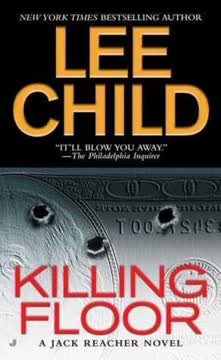
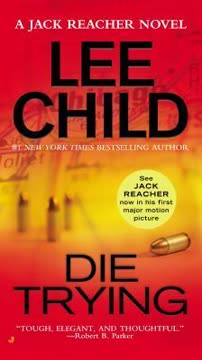
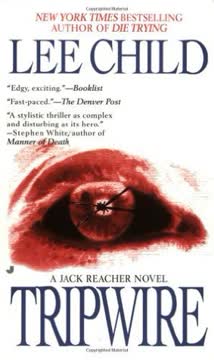
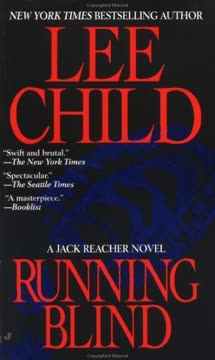
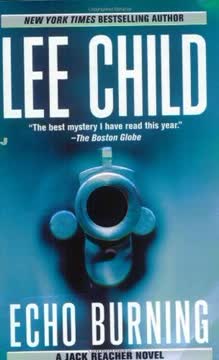
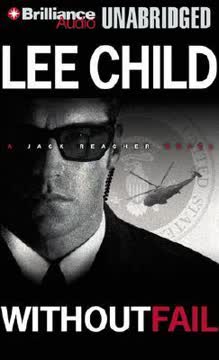
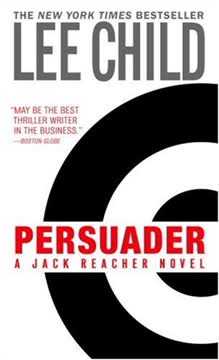
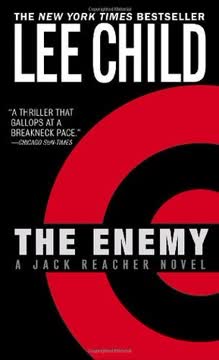
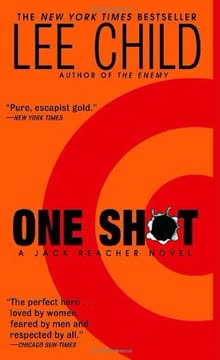
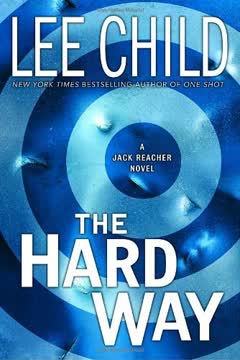
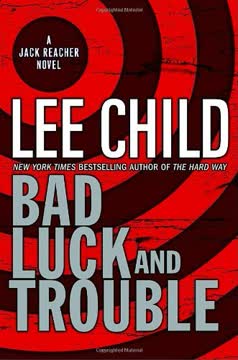
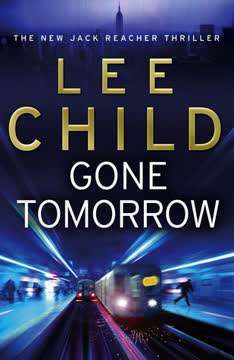
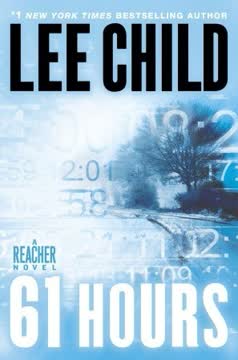
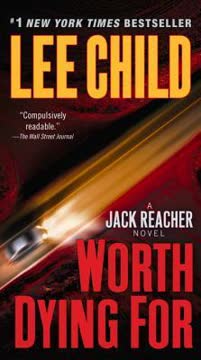
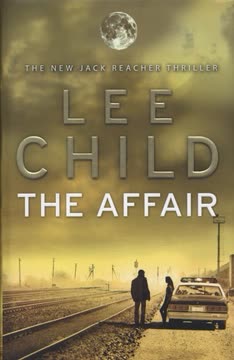
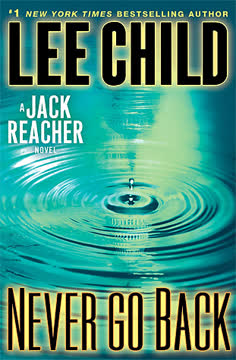

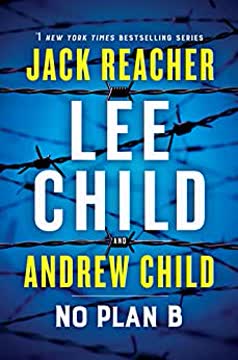
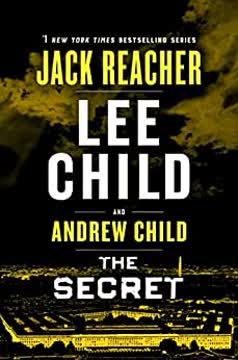
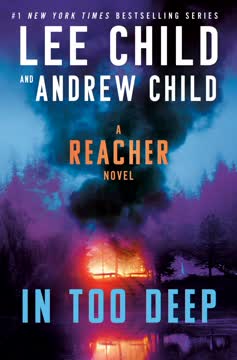
Download PDF
Download EPUB
.epub digital book format is ideal for reading ebooks on phones, tablets, and e-readers.
